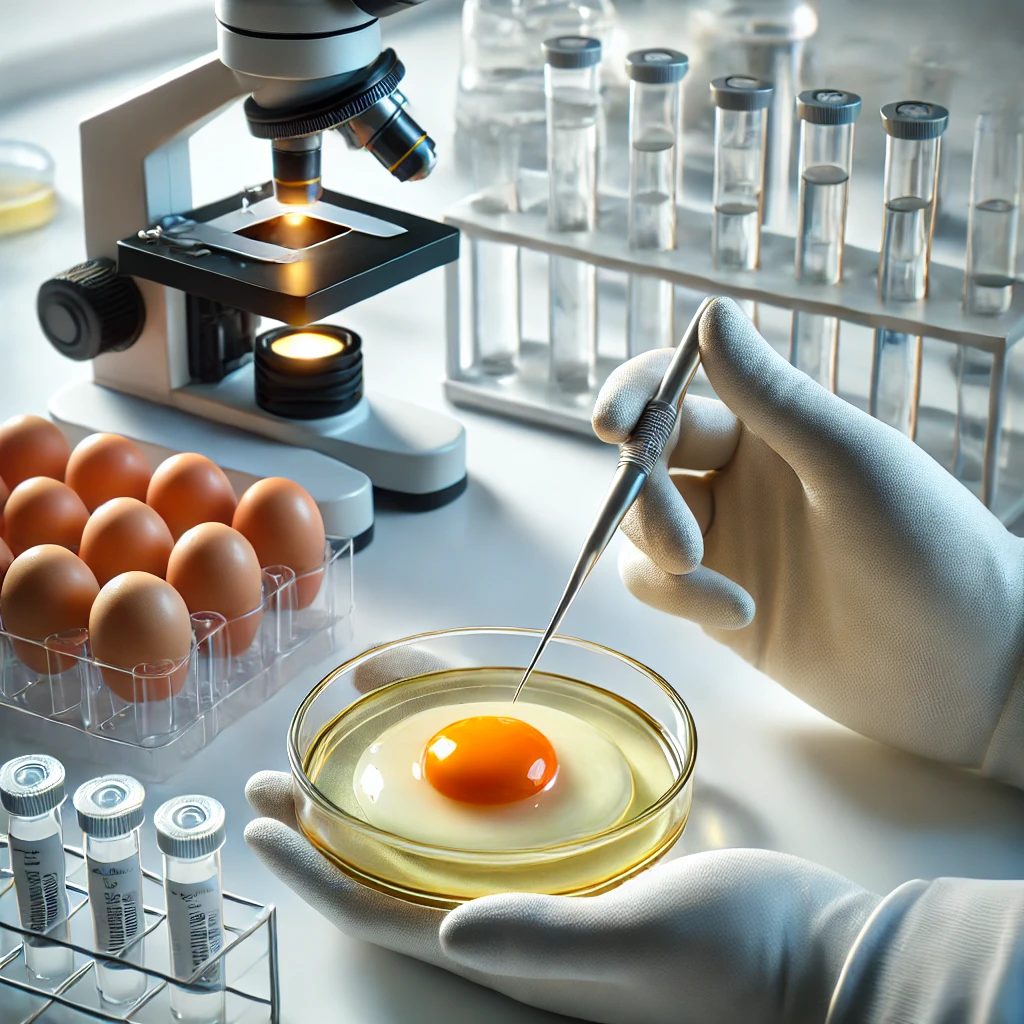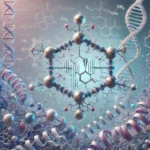
The study of chicken IgY antibodies opens up new possibilities for scientific research. These antibodies offer distinct advantages in terms of production, efficiency, and specificity compared to mammalian antibodies. With their unique properties, they hold potential applications in various fields, including immunology, biotechnology, and therapeutics. Their increasing use in research marks a turning point in the field of antibodies.
Immunoglobulin Y (IgY)
IgY is the low molecular weight serum immunoglobulin isotype predominant in amphibians, reptiles, and birds. The name “IgY” originates from its presence in egg yolk, which allows for the transfer of immunity from the hen to the developing embryo. Their synthesis is triggered when a pathogenic invader appears or during vaccination. IgY thus serves as a major defense against various infectious diseases for these animal species.
Scientific interest in IgY surged when researchers highlighted its unique ability to specifically recognize certain target proteins without cross-reacting with those from the mammalian immune system. This characteristic provides scientists with a valuable tool for detecting and isolating various biological molecules, aiding research into different cellular processes and pathological mechanisms.
Additionally, the industrial production of IgY is possible through the non-invasive collection of eggs containing this specific antibody, making this approach more animal-friendly compared to conventional methods used to collect other antibody types like rabbit or mouse IgG, which usually require multiple injections followed by repeated blood sampling to obtain sufficient quantities for experimental tests.
IgY production
Selection of hens
A crucial step in IgY antibody production is the careful selection of hens. Several factors require thorough consideration, as demonstrated in numerous publications. Essential criteria for optimal selection include:
- Age: Older hens generally produce a higher volume of IgY.
- Breed: Some species or breeds may prove superior in terms of IgY production.
- Sustainability: Preference is given to hens that have demonstrated a consistent ability to lay eggs regularly over an extended period without notable variations in IgY levels.
Development of purification methods
Once the egg yolk, where these immunoglobulin Y (IgY) antibodies are primarily concentrated, is obtained, various techniques are available for antibody purification. Salt precipitation, affinity chromatography, and ultrafiltration are among the advanced technologies employed, as cited in our scientific reference.
Growing interest in these biomolecules has driven significant research toward the continuous improvement of both the qualitative and quantitative aspects of purification methods. This approach allows for optimal concentration of specific antibodies while minimizing potential impurities, making the antibodies suitable for more precise and sensitive research applications.
The benefits of IgY antibodies
IgY antibodies offer several unique advantages. They are resistant to pH and temperature variations, making them particularly stable under changing experimental conditions. This stability is a significant asset in laboratory applications, where sample handling can lead to shifts in environmental conditions.
Unlike mammalian antibodies, IgY antibodies do not interact with the human immune system. This characteristic is crucial for biomedical applications, as it limits cross-reactivity with human antibodies such as IgG or IgA, enhancing diagnostic precision.
Moreover, IgY production is more economical and yields larger quantities compared to mammalian antibodies. A single hen can produce up to 100 times more antibodies than a rabbit, significantly reducing production costs for laboratories and biotech companies.
Applications in research
R&D in immunodiagnostics
In immunodiagnostics, IgY antibodies are increasingly used to detect specific biomarkers in diseases. Their high affinity for antigens and minimal reactivity with human immunoglobulins make them ideal for early disease detection. They are used in diagnostic tests to identify specific proteins with high accuracy, which can improve the reliability of clinical results.
Research on biomolecules
IgY antibodies are also utilized for studying biomolecules in various biological systems. Their ability to selectively recognize and bind to specific targets facilitates the study of complex molecular interactions. They are employed in advanced techniques, such as affinity chromatography and flow cytometry, to analyze macromolecular structures or investigate essential biological pathways.
IgY antibodies vs. mammalian antibodies
Yield and specificity of IgY
A key difference between IgY antibodies and those derived from mammals lies in yield. A single hen, on average, produces up to 100 times more antibodies than what could be obtained from the blood plasma of a rabbit. Additionally, IgY antibodies possess unmatched specificity for their target immunogens, even when the target is a conserved protein across multiple species.
Advantageous immunological tolerance
Another remarkable strength of IgY antibodies is their advantageous immunological tolerance compared to mammalian antibodies. Highly conserved molecules often go unrecognized as foreign by mammalian immune systems, making it challenging to produce effective antibodies against them. In contrast, chickens and other birds are less likely to exhibit this non-reactive response due to evolutionary divergence, facilitating effective antibody production against conserved proteins.
The future of IgY antibody use
The growing adoption of IgY antibodies in research signifies a pivotal shift with various promising future applications.
- Enhanced extraction techniques: Ongoing optimization of extraction processes increases yield while reducing production costs.
- Expanding application fields: While already widely used in immunology and virology, IgY antibodies could find new applications in oncology, microbiology, and beyond.
- Technological innovation: Combining IgY with nanotechnologies offers the potential for cutting-edge therapeutic approaches, enhancing specificity for targeted antigen detection and treatment.
In summary, IgY antibodies mark a significant advancement in scientific research. Their increased stability and superior specificity make them invaluable tools in biotechnology, immunodiagnostics, and fundamental research. As new technologies continue to evolve, IgY antibodies are poised to transform many areas of biomedical science, contributing to a deeper understanding of cellular mechanisms and pathologies. Furthermore, their animal-friendly production methods align with positive ethical trends, setting a hopeful standard for future immunological research.
References
- Rose, M. E., Orlans, E., & Buttress, N. (1974). Immunoglobulin classes in the hen’s egg: their segregation in yolk and white. European journal of immunology, 4(7), 521-523.
- Carlander, D., & Larsson, A. (2001). Avian antibodies can eliminate interference due to complement activation in ELISA. Upsala journal of medical sciences, 106(3), 189-195.
- Pacheco, B. L. B., Nogueira, C. P., & Venancio, E. J. (2023). IgY antibodies from birds: A review on affinity and avidity. Animals, 13(19), 3130.
- Ko, K. Y., & Ahn, D. U. (2007). Preparation of immunoglobulin Y from egg yolk using ammonium sulfate precipitation and ion exchange chromatography. Poultry science, 86(2), 400-407.
- Lee, L., Samardzic, K., Wallach, M., Frumkin, L. R., & Mochly-Rosen, D. (2021). Immunoglobulin Y for potential diagnostic and therapeutic applications in infectious diseases. Frontiers in Immunology, 12, 696003.
- Dou, Leina, et al. “Advances in chicken IgY-based immunoassays for the detection of chemical and biological hazards in food samples.” Journal of Agricultural and Food Chemistry70.4 (2022): 976-991.



